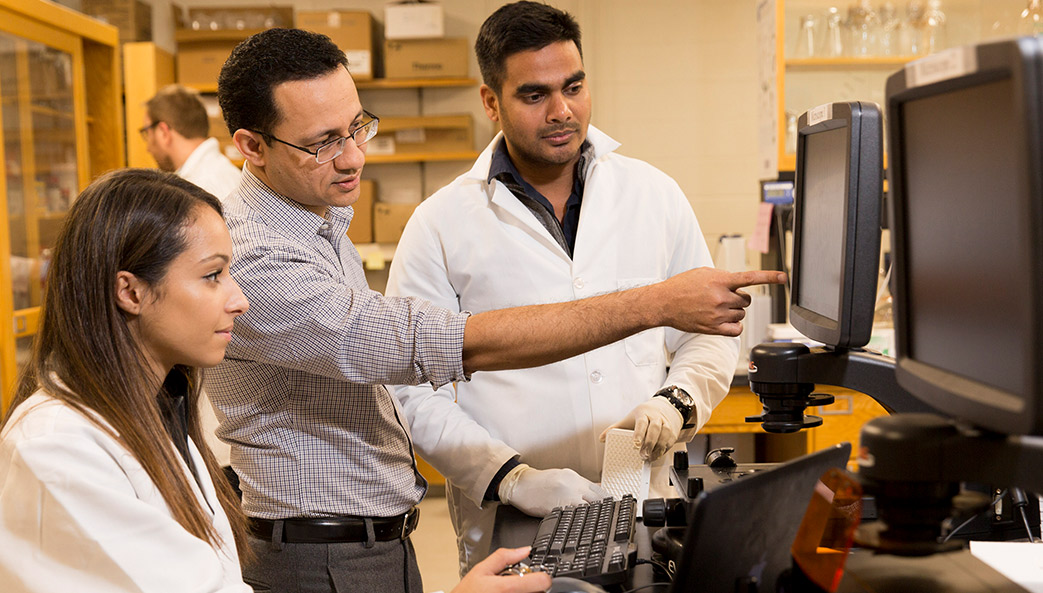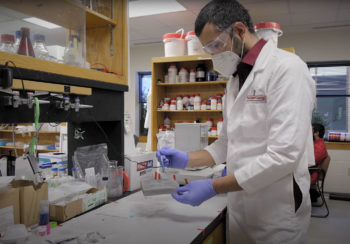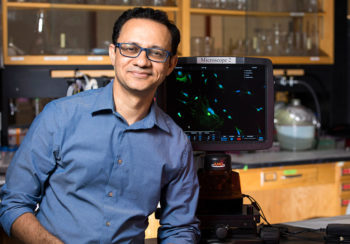Medical implants offer great benefits but also can be the cause of two major health problems. The sticky colonies of bacteria known as biofilm that form on implants are one of the leading causes of infections that kill thousands of people in the United States each year. In addition, implants are often the culprit in potentially lethal thrombosis, or blood clotting.
A UGA scientist is developing a new way to prevent medical devices from causing either of these problems. Hitesh Handa, an assistant professor in the College of Engineering, is designing biocompatible polymer coating that not only prevents biofilm growth but also attacks harmful bacteria by releasing nitric oxide, a naturally occurring gas with potent antimicrobial properties.
Handa’s work recently attracted a four-year, $1.5 million research grant from the National Institutes for Health.
“Current technologies fail to completely address the potentially harmful complications related to medical implants,” he said. “Nitric oxide is the focus of this project because it not only serves as an antimicrobial agent, it also can help prevent clotting on medical implants such as vascular catheters.”
If successful, Handa believes his nitric oxide-releasing coatings will be applicable to a wide range of medical devices and implants including vascular grafts, stents, urinary catheters and endotracheal tubes.
This brief appeared in the fall 2017 issue of Research Magazine. The original press release is available at https://news.uga.edu/releases/article/medical-implants-resist-infection-clotting/.






